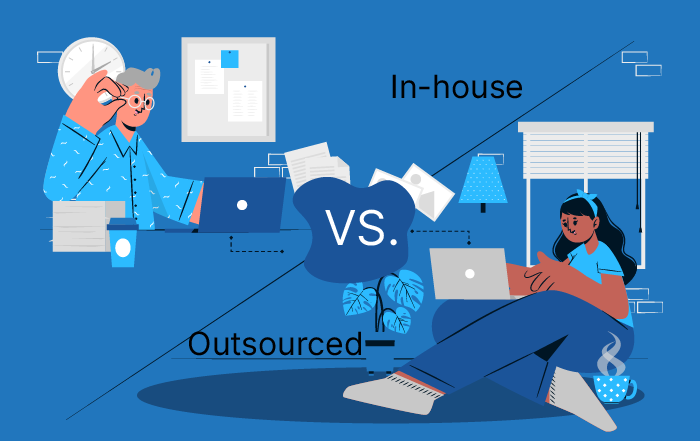Why Service Dispatch Software Is Essential for Your Business
As the demand for internet services continues to soar, internet service providers (ISPs) face the constant challenge of efficiently managing their...

Field operations play a pivotal role in an ISP, serving as the backbone that ensures the seamless delivery of services to customers. Field technicians are at the forefront of resolving connectivity issues, installing and maintaining network infrastructure, and addressing any physical challenges that may arise in the field. Their expertise is critical in optimizing network performance, troubleshooting problems, and ensuring that customers receive reliable and high-quality internet services.
As ISPs continue to expand their networks they face a critical decision that shapes their operational efficiency and customer satisfaction – the choice between managing field services in-house or outsourcing them to external partners. This decision significantly impacts the bottom line, customer satisfaction, and the overall operational efficiency of an ISP.
In this blog post, we explore the intricacies of cost analysis to help ISPs make informed decisions about their field service strategy.
Operating an in-house field service team allows ISPs to have direct control and oversight of their operations. This control can be crucial when it comes to maintaining service quality, adhering to company standards, and ensuring a seamless customer experience.
Building an in-house team requires a significant upfront investment in training and equipping field service technicians. However, this investment can lead to a more skilled and specialized workforce, capable of handling a wide range of issues efficiently.
In-house teams provide greater flexibility in adapting to the specific needs and challenges of an ISP. Customization of processes, protocols, and service delivery can be tailored to align with the unique requirements of the business.
One of the primary attractions of outsourcing field service is the potential for cost savings. Third-party vendors often have established infrastructure, tools, and personnel, leading to reduced operational costs for ISPs.
Outsourcing allows ISPs to scale their field service operations up or down based on demand. This scalability can be particularly beneficial in dynamic environments where workloads fluctuate.
Field service providers often specialize in specific areas, bringing a wealth of expertise to the table. Outsourcing can grant ISPs access to specialized knowledge and skills that might be challenging to develop in-house.

In-house operations typically require a substantial initial investment in training and equipment. However, ongoing costs may be more predictable. Outsourcing may provide immediate cost savings, but long-term expenses can be less predictable.
The quality of service is a critical factor in the internet service industry. In-house teams may offer better control over service quality, while outsourced providers may provide specialized expertise, potentially enhancing overall service quality.
In-house operations may provide more direct control over security and compliance issues, but outsourcing introduces a level of risk. Choosing a reputable outsourced partner is crucial to mitigate these risks.
Final Thoughts
The decision to manage field service in-house or outsource it is a complex one that requires careful consideration of various factors. ISPs must conduct a thorough cost analysis, considering both the immediate and long-term implications. While in-house operations offer control and customization, outsourcing provides potential cost savings and scalability. Ultimately, the right choice depends on the specific needs, goals, and priorities of the ISP. Striking a balance between control, cost-effectiveness, and service quality is key to navigating the intricate network of field service management.

As the demand for internet services continues to soar, internet service providers (ISPs) face the constant challenge of efficiently managing their...

A dispatcher is a person behind the scenes who helps field technicians execute their onsite jobs. They are heavily relied on to make sure the field...

2 min read
As an Internet Service Provider, it’s imperative to regularly assess your current technology stack to ensure it’s still meeting your needs and...